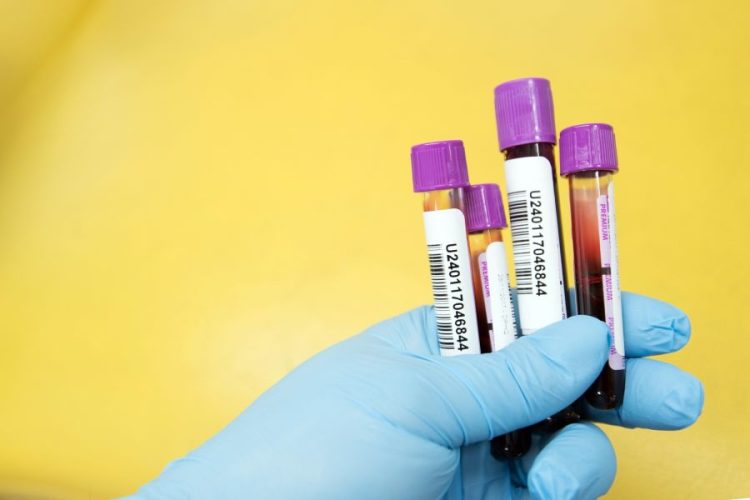Essential Equipment for Biotechnological Research Labs

Categories :
As advancements in technology continue to shape our modern society, the field of biotechnology is pushing boundaries and solving complex challenges. The demand for skilled professionals in this industry is ever-increasing, which means that research laboratories must stay up-to-date with the latest equipment and techniques.
To thrive in this competitive sector, having access to essential equipment is key for conducting experiments efficiently and obtaining accurate results. Let's take an in-depth look at the top essential equipment every biotechnological research lab should have in its arsenal.
Nootropics and Peptides
Nootropics and peptides are two supplements that have been gaining a lot of attention in recent times. Researchers in the biotech industry are exploring these supplements for their ability to enhance cognitive function, improve memory and focus, and potentially provide neuroprotective benefits. Suppliers like Venogen offer a wide range of high-quality nootropics and peptides, making them easily accessible for research purposes. The combination of these supplements with other essential equipment can significantly impact the success of experiments in a biotechnological research lab. Know that some of the most commonly used nootropics and peptides include racetams, choline sources, and growth hormone-releasing peptides (GHRPs).
PCR Machines
Polymerase Chain Reaction (PCR) Machines are often referred to as the backbone of the life sciences industry. These machines are a fundamental tool for amplifying DNA sequences, and they have revolutionized genetic research, diagnostics, and cloning.
Since its invention in 1983 by Kary Mullis, PCR has become an essential technology for thousands of scientists worldwide. Thanks to this technology, researchers are able to isolate and analyze the DNA of any organism and even diagnose viral or bacterial infections. PCR machines are therefore an indispensable tool for the modern laboratory, a cornerstone of the biotech industry, and a game-changer in the field of genetics.
Centrifuges
Centrifuges use centrifugal force to separate mixtures of substances with different densities. In the biotech industry, centrifuges are used to isolate and purify cellular components such as proteins, DNA, RNA, and organelles.
The ability to efficiently separate these components is crucial in many biotechnological experiments. For example, in gene therapy research, centrifuges aim to separate viral vectors from cellular debris. Centrifuges come in various types and sizes, but all serve the same purpose of effectively separating mixtures for further analysis.
Autoclaves
Autoclaves are essential for sterilizing equipment, media, and other materials used in biotechnological research. These machines use high heat and pressure to kill bacteria, viruses, fungi, and other microorganisms that may contaminate experiments or samples.
The purpose of an autoclave is to prevent the spread of pathogens and ensure that experiments are conducted in a sterile environment. A laboratory that isn't equipped with an autoclave would run the risk of cross-contamination and inaccurate results, which can be detrimental to research outcomes.
Spectrophotometers
Spectrophotometers are powerful tools in the realm of chemical and biological analysis. These devices allow us to measure the intensity of different wavelengths of light, and this information can help us determine the composition of a sample.
Spectrophotometers can detect the presence of certain molecules or monitor chemical reactions in real-time. They have become an essential part of many fields including pharmaceuticals, biology, and environmental science. Without these devices, we would be less equipped to understand the world around us. No matter the size of a biotech research laboratory, a spectrophotometer is indispensable for accurate and reliable data analysis.
Incubators
Incubators are climate-controlled chambers that provide a controlled environment for growing and maintaining cell cultures. These machines mimic the natural conditions necessary for cells to grow and multiply, essential components in biotechnological research.
Cell cultures are widely used in genetic research, drug development, and vaccine production. Incubators are designed to maintain precise temperature, humidity, and CO2 levels, ensuring that cell cultures are kept in optimal conditions for growth and experiments. For any biotech research lab, an incubator is a critical piece of equipment for conducting successful experiments and producing reliable results.
Liquid Handlers
Liquid handlers are robotic systems that have become an integral part of high-throughput experiments in the biotech industry. These machines automate the process of pipetting, dispensing, and mixing liquids so that experiments are faster and more accurate.
With liquid handlers, researchers can perform multiple reactions simultaneously, reducing human error and increasing reproducibility. They also reduce the need for repetitive manual tasks, allowing scientists to focus on data analysis and interpretation. In terms of efficiency and accuracy, liquid handlers are an indispensable tool for any biotechnological research lab.
Electrophoresis Equipment
Electrophoresis is a technique used to separate and analyze DNA, RNA, and proteins based on their size and charge. This method involves placing a sample in an electric field, causing molecules to move towards either the negative or positive electrode.
In biotech research labs, electrophoresis equipment is used for a variety of purposes such as DNA sequencing, protein purification, and genetic fingerprinting. When combined with other essential equipment like PCR machines and centrifuges, electrophoresis equipment may provide valuable insights into genetic variations and diseases.
Flow Cytometers
Flow cytometers are the unsung heroes of any biotechnological research lab, offering a glimpse into the cellular world with unparalleled precision and speed. By analyzing particle characteristics as they pass through a laser beam, flow cytometers can decipher the mysteries of cellular function, cancer genesis, and immunological responses, all in real-time. This capability makes them indispensable for advancing our understanding of complex biological systems.
Because they can sort, count, and analyze thousands of particles per second, flow cytometers embody the cutting-edge of biotechnological research, enabling scientists to paint a more detailed picture of cellular life than ever before. No matter the field of research, these machines are there to shed light on cellular function and pave the way for new discoveries.









